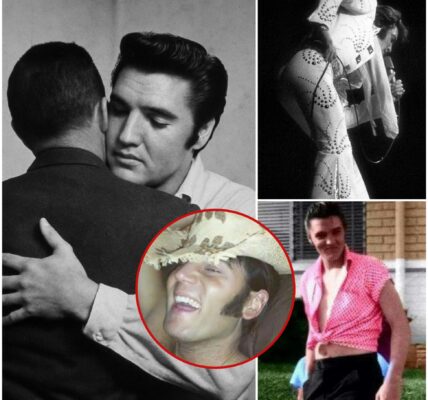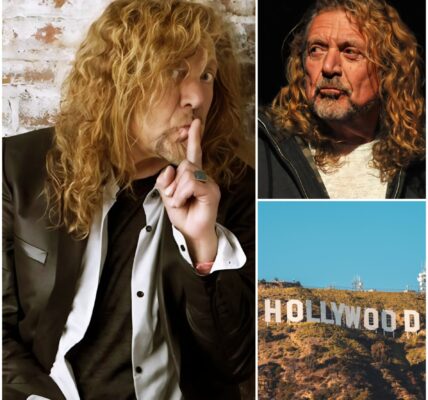“Good Ol’ Boys”: Waylon Jennings’ Anthem of Rebellion, Freedom, and Timeless Country Spirit
When Waylon Jennings released “Good Ol’ Boys” in 1979, few could have predicted the cultural impact it would carry for decades. Written as the theme song for the television hit The Dukes of Hazzard, the track became far more than a TV jingle. It transformed into an anthem that spoke to millions—capturing the restless independence, playful rebellion, and unwavering pride in one’s roots that defined both outlaw country and the American spirit of the late 20th century.
At its heart, “Good Ol’ Boys” tells the story of men who live by their own rules, guided not by institutions but by instinct, family ties, and loyalty. The lyrics set the tone immediately:
“Just a good ol’ boy, never meaning no harm,
Beats all you never saw, been in trouble with the law since the day they was born…”
These lines portray a character familiar to country music fans: someone constantly at odds with authority, not out of malice, but out of a refusal to conform. The “good ol’ boys” are rebels with a cause—the cause of living free, proud, and unapologetically themselves. In many ways, it was a mirror of Waylon Jennings’ own life.
Waylon Jennings and the Outlaw Country Movement

By the late 1970s, Jennings was already a central figure in the outlaw country movement—a rebellion within country music itself. Alongside legends like Willie Nelson, Johnny Cash, and Kris Kristofferson, Waylon pushed back against the polished, commercialized “Nashville sound.” He demanded artistic control over his music, refusing to let executives dictate his sound, image, or collaborations.
“Good Ol’ Boys” fit seamlessly into this ethos. Its message wasn’t just for fans of The Dukes of Hazzard—it became a rallying cry for anyone who felt stifled by rules, tradition, or authority. Jennings’ decision to sing the theme song himself also reinforced his connection to the characters: outsiders, always skirting the line between trouble and integrity, but loyal to family and community.
The Sound of Freedom
Musically, the song is classic outlaw country. It blends steady rhythms with twangy guitar riffs and upbeat percussion, creating an energy that feels both playful and defiant. The melody is simple but infectious, designed to stick in the listener’s head long after the episode ended.
What makes the song unforgettable, however, is Jennings’ voice. His gravelly baritone carried a weight of truth. Unlike polished Nashville singers, Jennings sounded real—like a man who had lived through the stories he sang about. His delivery gave “Good Ol’ Boys” authenticity, turning what could have been just a television theme into something deeper, something that resonated across generations.

A Song That Spoke Beyond the Screen
Although tied to The Dukes of Hazzard, “Good Ol’ Boys” transcended its role as a theme song. The television show portrayed the adventures of Bo and Luke Duke—two cousins constantly on the run from corrupt local authorities, yet always guided by loyalty, family, and a mischievous sense of justice. Waylon Jennings’ song didn’t just introduce the show; it captured its soul.
But beyond that, the song became a cultural statement. For many, it represented small-town life in America—a life where everyone knew each other, where trust mattered more than laws, and where survival often meant bending the rules. To working-class fans, “Good Ol’ Boys” wasn’t about reckless troublemaking. It was about dignity, resilience, and refusing to be controlled.
The Legacy of “Good Ol’ Boys”
Over four decades later, the song continues to resonate. Fans still sing along, even those too young to remember the original run of The Dukes of Hazzard. Cover bands keep it alive, and clips of Jennings performing it resurface online, reminding new generations of its timeless appeal.

Critics have also recognized “Good Ol’ Boys” as one of Jennings’ signature tracks. While he had countless hits—“Mammas Don’t Let Your Babies Grow Up to Be Cowboys,” “Luckenbach, Texas,” and more—this theme song carried a unique accessibility. It brought Jennings’ outlaw sound into living rooms across America every week, introducing millions of casual viewers to a movement they might otherwise have missed.
For fans of outlaw country, the song remains a perfect encapsulation of the genre: a blend of rebellion, storytelling, and unpolished honesty. For casual listeners, it’s a nostalgic reminder of a show and an era defined by a certain wild, carefree spirit.
Why It Still Matters
What keeps “Good Ol’ Boys” alive isn’t just nostalgia—it’s the universality of its message. The song celebrates independence, pride in one’s heritage, and the courage to live authentically, even when it means going against the grain. These themes are as relevant today as they were in 1979.
In a world where conformity often feels like the path of least resistance, Jennings’ anthem reminds us of the beauty—and sometimes the cost—of staying true to ourselves. It’s not just about being rebellious for rebellion’s sake. It’s about freedom, integrity, and loyalty to the people and places that define us.
Conclusion

Waylon Jennings’ “Good Ol’ Boys” is more than a theme song and more than a hit single. It is an anthem of outlaw country, a declaration of independence, and a testament to the enduring power of music that speaks from the heart. Through its lyrics, its sound, and Jennings’ unforgettable delivery, the song captures a way of life that values freedom over conformity, loyalty over rules, and authenticity over pretense.
Over 40 years later, the message still rings true: some people are born to walk their own path, and though the world may call them outlaws, they will always be remembered as the good ol’ boys who refused to be anything less than themselves.




